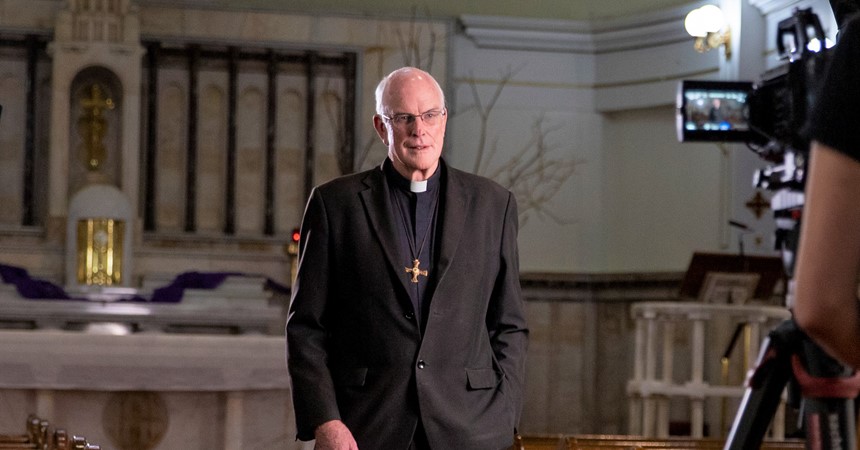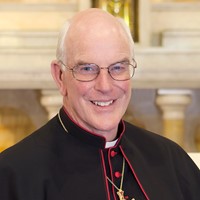Will we all stand four feet apart to talk to one another? Are handshakes a thing of the past? We know there will be changes in the patterns of work and school and travel, even if it’s not clear yet what those changes will be. But how much will the simple, ordinary ways that we live together be shifting in the future? Time will tell.
When whole communities go through extended difficult times, they are affected by it. My own parents, for example, were young jobseekers in Australia during the Great Depression. Their parents were out of work or doing piecework. Then there was the Second World War, just as my older brother and sister were toddlers. Every shilling mattered, even though my father was quite well placed compared to a lot of his contemporaries, and I think the effects of that time were visible for the rest of their lives. There was a frugality, almost a positive hatred of seeing things wasted, and a sense of the need to get along with the neighbours and help each other out when needed, that marked a generation. Bad times can produce good things. When we lived in London, nearly 20 years after the war, they might joke about the Brits’ on-going habit of forming a queue “wherever two or three are assembled”, but the jokes were tinged with respect for the stoicism, patience and self-discipline involved. They were never a “me first” generation. Perhaps some good will come of COVID-19, perhaps some renewed civility in the toilet paper aisle?
When I think about the possible effect of the pandemic on our religious life, however, my mind flicks much further back, six centuries further back. I once did some study of the Black Death of the mid-14th century, from a religious point of view. And it was a mixture, short and long term. That pandemic, the Bubonic Plague by its other name, came from the East and gradually arrived in Europe via the great port cities, on ships laden with travellers and, more importantly, rats. In the end, it carried off something like a third of the population of Western Europe, creating an economic downturn for a century or so. Naturally, it affected people’s minds and beliefs.
One result was religious scepticism. It quickly became apparent, of course, that gathering the village for prayer, or processing around the city walls, didn’t stop the plague. So, then as now, for those who thought religion was supposed to be a technique for getting on well in this world, there was disillusionment with God and all his minions. On the other hand, the clergy were then society’s “first responders”, tending the sick and dying as no one else did. They received some kudos for that, or, for those who ran away, the sort of contempt that actually reinforces an ideal in a community. In the end, clergy died in great numbers, leaving empty parishes across the land. That created a long-term problem, as 15th-century bishops struggled to make up the numbers by ordaining huge groups of priests year after year. In short, there was a quality control issue that was still only beginning to be resolved as the Reformation’s critique of worldly and ignorant clergy broke out. Some historians even think the Black Death largely created the late-medieval obsession with death, purgatory, indulgences and the like.
So, our past experience of pandemic is a mixed bag religiously. Some purging of the magical elements of popular religion. Some heroic examples of Christian service and courage. The loss of a generation of the best representatives of that courage. A long-term “labour force” problem. And perhaps a new fearfulness that skewed the way people saw life in this world. That was then.
Now? Well it’s too soon to know. Closed churches and social distancing are throwing believers more on to their own resources for sustaining and living their faith, and that may be a very good thing. The “consumer” approach, where the Church is responsible for providing the “God bit” of life, when and if required, is not working out so well, after all. On the other hand, some will conclude that what was important through all this was not an inner life and resilience, but really only plenty of masks and ventilators. Perhaps we shall stop pretending that we’re going to live forever, or perhaps we’ll swaddle ourselves in “distance” and sanitizer to try to make ourselves invulnerable. Realism or fearfulness? Concern for each other or self-protection? Community or security? I hope for the best, but it will be what we make it. For me right now it’s “Lead Kindly Light amidst the encircling gloom”, as Cardinal Newman put it.




























































































